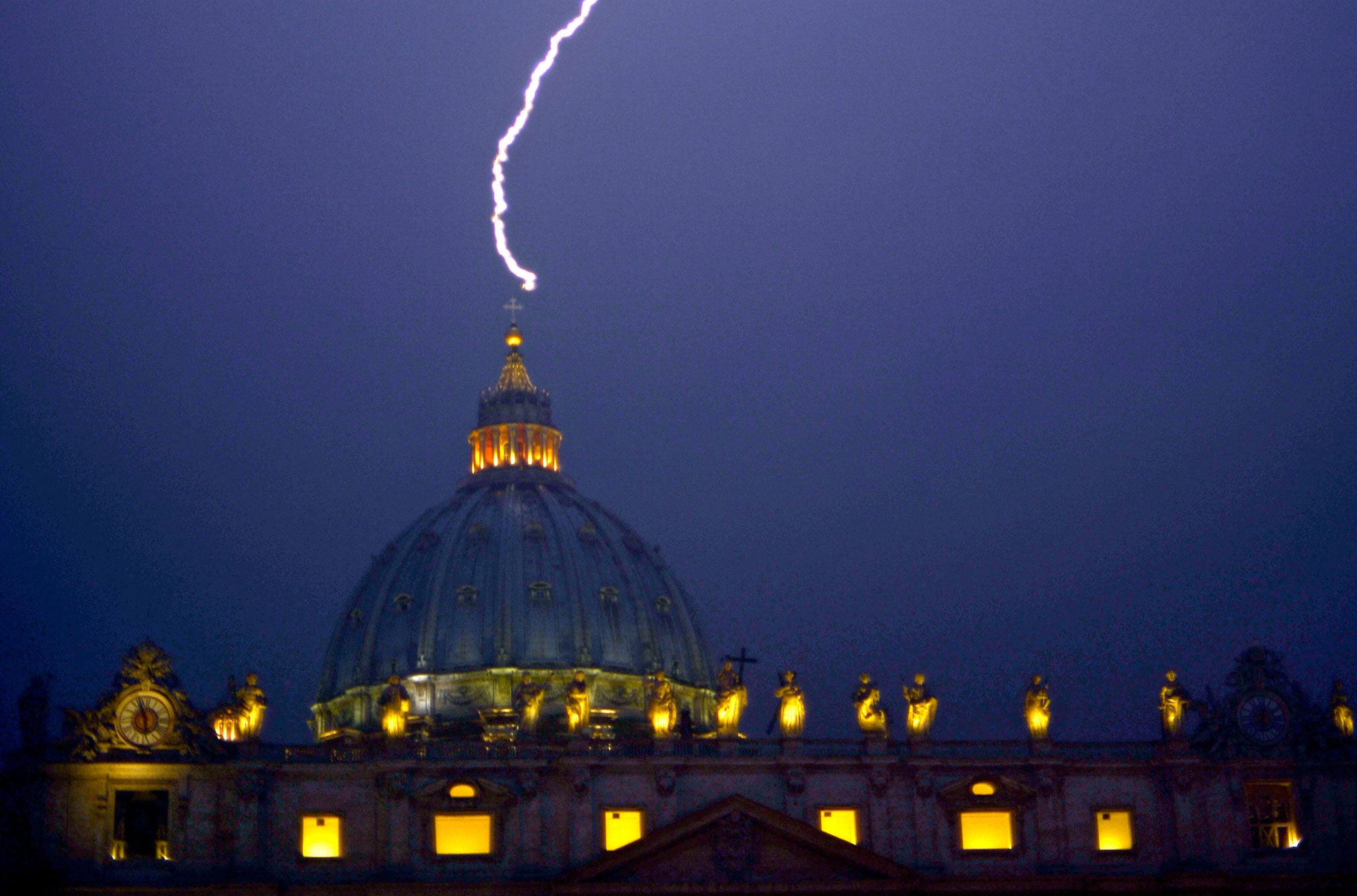Errors and Omissions: The Vatican seems less good at Latin than it used to be
Our peerless pedant examines the flaws in this week's Independent

St Peter’s Basilica was struck by lightning on Monday after the Pope’s resignation. Could it be that the outraged gods of pedantry were responsible?
In the opening sentence of his resignation statement, the Pope told the cardinals that he had to announce a decision important “for the life of the Church” – which in the official Latin text appears as “pro Ecclesiae vitae”.
I would expect the Vatican’s Latin to be better than mine. I suppose I might be wrong. But surely “pro” takes the ablative case, and that ought to be “pro Ecclesiae vita”. Remember the book by that great English Catholic, John Henry Newman: Apologia Pro Vita Sua.
Journalese: Clichés can become so familiar you scarcely notice them. Last Saturday, a news story was headed “Cryptic code scrawled on Delacroix’s masterpiece”. On Monday, another news story reported: “The tour manager [of the Cornish folk group, Fisherman’s Friends] was killed and one of the singers seriously injured in a freak accident as they prepared for their latest concert.” Well, is Liberty Leading the People really a masterpiece, or just a painting? And does being crushed by a steel door really qualify as a freak accident, or just an accident? Did anybody ask those questions before banging down the words “masterpiece” and “freak accident”? In the journalese world, every painting by a dead artist is a masterpiece, and the word “accident” simply cannot leave the house unless it is accompanied by “freak”.
Phwoar, get a load of that! The news story about “Delacroix’s masterpiece” was not written for the art cognoscenti. “The work,” it explained, “portrays a bare-breasted woman at the head of a revolutionary charge.” Well, yes, in the same sense in which Michelangelo’s David portrays a bloke with his kit off. But first and foremost she is a female figure personifying Liberty. The state of her décolletage is not the most important thing about her (though it may be the most striking, in masculine eyes at least).
Don’t quote me: The purpose of quotation marks, particularly in headlines, is to make clear that the words in quotes are not uttered in the voice of the newspaper. They represent something that somebody has said. The device is usually employed when the material in question may not be true.
Here are a couple of headlines from our news pages this week that employ quote marks for a different and rather odd purpose. On Monday, we carried the headline “Five crew members die during ‘safety drill’ on cruise ship”, and on Wednesday this: “Police and FSA raid Yorkshire abattoir accused of supplying horse meat ‘kebabs’ ”.
But the words in quotes are perfectly true in each case: a safety drill is still a safety drill even when it goes horribly wrong; and a horse meat kebab is still a kebab. The quotation marks, it seems, are being used to signal to the reader that there is something dodgy going on. This is just vague mumbling, and it won’t do. Punctuation, no less than words, should be used with clarity.

Join our commenting forum
Join thought-provoking conversations, follow other Independent readers and see their replies